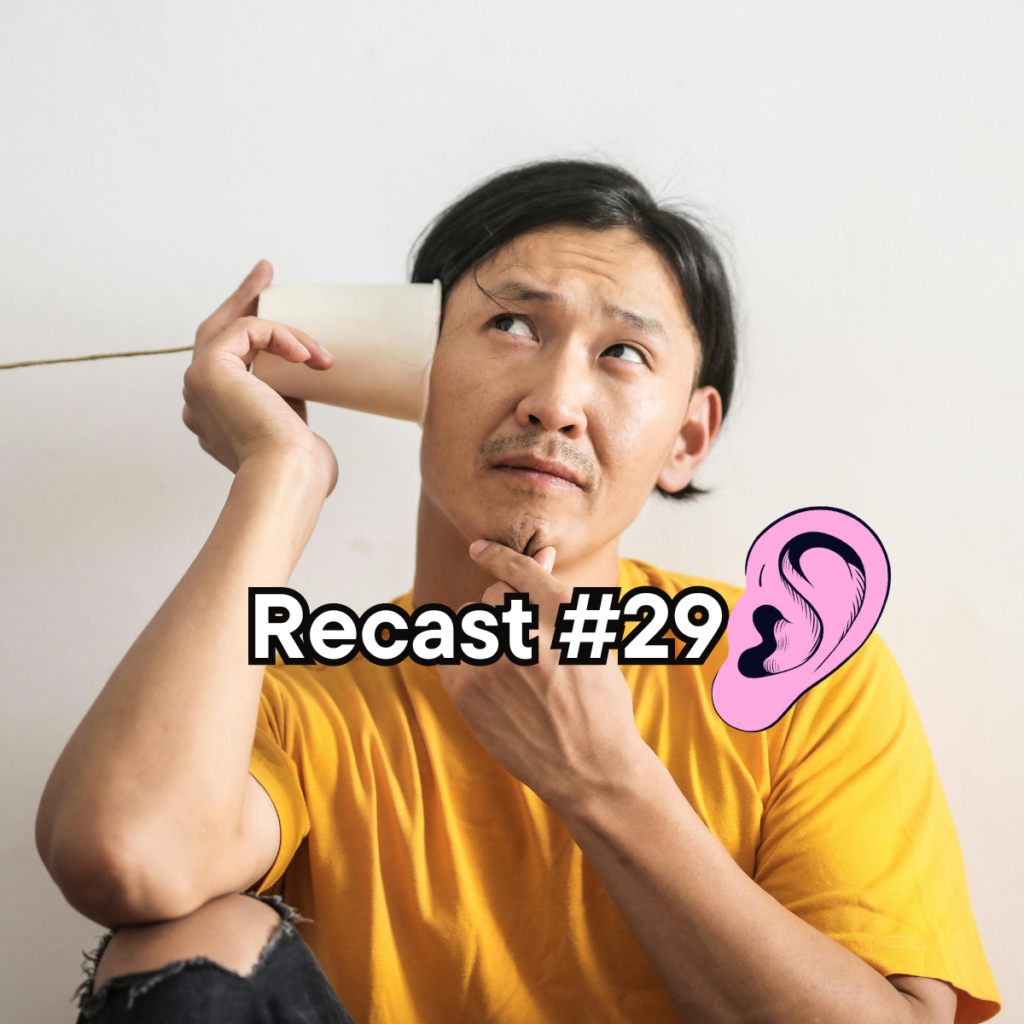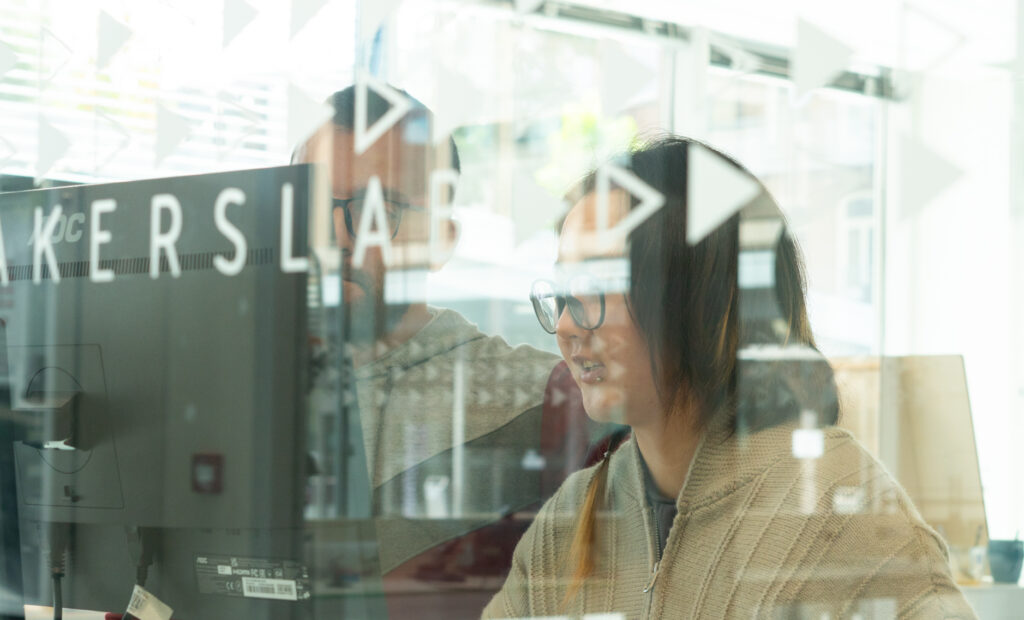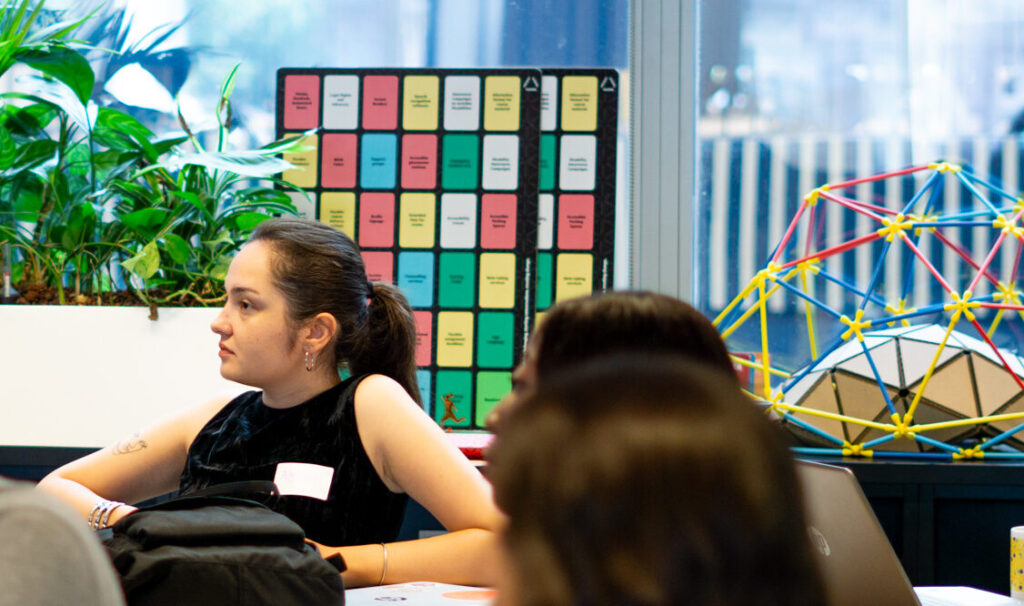Insight
When a standard questionnaire just won’t do: building a time machine to get insights at the Next Web 2019.
“Would you feel safer if the police use facial recognition in the public space?”
This and similar questions we asked at this year’s The Next Web Conference 2019. In collaboration with the Dutch police and the Digital Society School, our team multidisciplinary team is working to define the people’s relationship with new technologies.
Over the course of one semester, our team consisting of Neel Koradia, Lama Ahmed, Ola Bonati and Sascha Vonk were assigned a case-study from the Dutch Police.
Artificial intelligence
In the coming years, the Dutch police intend to use more and more systems based on artificial intelligence. They have already been implementing predictive policing programs like Crime Anticipation System (CAS) using heat maps where areas of higher risk are identified or facial recognition technology that allows for faster detection of sought after criminals. Understanding the ethical issues that might be brought to the table when implementing systems like the ones mentioned above, the Dutch police have asked us to find out what are people’s attitudes and concerns surrounding the implementing artificial intelligence based systems in policing.
Let’s go analog
This time, thanks to our partners at the police, we were able to display and test our prototype at one of the largest tech conferences in Europe: The Next Web! We knew that going for a digital-only prototype might make us disappear in the sea of technological novelties and displays at the conference. We also noted that physical installation is often more memorable and successful in sparking interaction. That is why we decided to go about the topic differently:
Welcome to our time machine experience!
At Digital Society School we combine theoretical knowledge with building physical prototypes that can visualize and express even the most abstract ideas. This time was no different, we decided to create a piece that combines the following goals:
- attracts attention
- offers a memorable and fun experience
- collects the necessary data for our research
Building a time machine
In a four-week sprint, we have conceptualized, directed, edited and built the “time machine” along the way creating the character of professor Vandervelde renowned scholar in the realm of time travel. Unfortunately prof. Vandervelde got stuck in the past, but as “a great scientist and a relentless dreamer, his life’s endeavour is to contact the people from the future and get to know about it as much as possible. If you approach our machine, the professor will eagerly ask you all sorts of questions about the technology of the future.
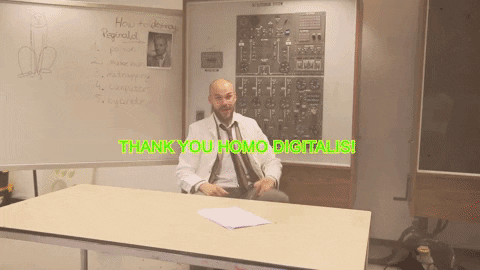
“Excited to learn all about Homo Digitalis!”- prof. Vandervelde 1968
We hoped that by turning a standard questionnaire into an immersive experience we allowed participants to answer in accordance with their true feelings and provoke relevant discussions. By answering those questions, you also have a real impact on the course of our research and ultimately help the Dutch police in understanding people’s perception of AI. That opportunity was also recognized by the Strategic Advisor to Dutch National Police Jesper van Putten who encouraged us to pursue our idea for the prototype and made it a part of the Next Police stand at TNW.
“Thank you for being there. I think it is super relevant to find out how people feel about the developments in relation to the Next Police and the consequences on privacy. As the Next Police we have to respond to the changing society and use the intelligence and techniques that the world gives us. On the other hand: we want to be a police for all the people, so if the people do not support the way we work we need to change our strategy. So that’s why it’s important to hear from you what people think and how they want us to use the new technological possibilities.”
Jesper van Putten
Strategic Advisor Dutch National Police,
Department on Strategy & Innovation
Results
The time machine experience allowed us to find out more about people’s perception of AI used in policing. The answers to difficult qustions some of which involved choosing between privacy and security have provoked interesting conversations. In one the question “Would you feel safer if the police uses AI to take preventive measures? For example: predicting the areas in which crimes will happen.” half of the people answered that it would make them feels safety whereas the other half expressed concern about potential biases that might arise. Such a divide might suggest that the public is indeed divided when it comes to their acceptance of police use of AI-based systems. After completion of the experience, many people stayed to further discuss some of the dilemmas presented to them giving us more ideas on which direction our work should be continued. If you would like to find out more about the kind of questions we chose to ask and try the online version of our time machine please visit our new website!
Happy!
Needless to say, our analog installation stood out! Happily, we were able to collect enough data, participate in fascinating talks, and exchange interesting conversations about the topics we currently study and beyond. Right now we are finishing documentation of our work with the Dutch police and creating a final report on all the findings from this experience.
Meaningful impact
At DSS we want to create meaningful impact. This partnership is linked to the United Nations Sustainable Development Goals Peace, Justice and Fair Institutions (16) and Reduced Inequalities (10).
If you would like to know more about our collaboration with the Dutch police please visit our blog , medium or contact us directly olabonati@gmail.com .
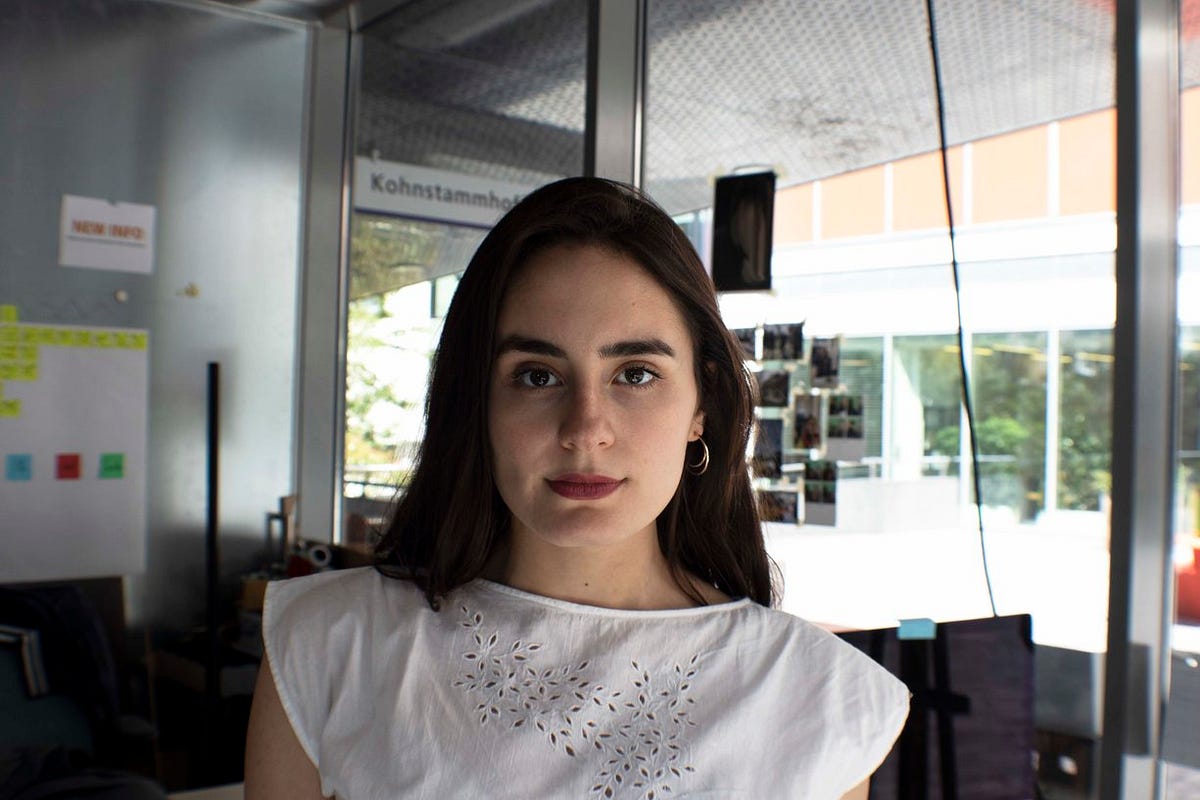
This post is written by Ola Bonati, New Media researcher and designer
“I am passionate about new media and their application in creating digital environment more accessible to a wider audience. Currently working with my team on reimagining the future of policing.”
